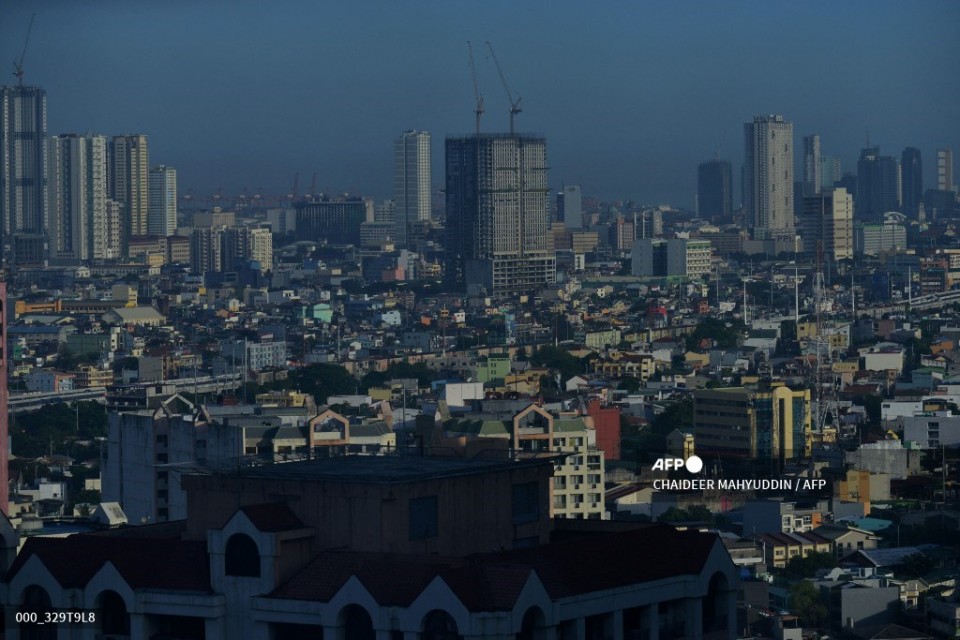
The Philippine economy grew stronger than expected in the first quarter, officials said Thursday, as the lifting of Covid-19 restrictions and the start of the election campaign season ignited consumer spending.
Gross domestic product expanded by 8.3 percent, compared with a 3.8 percent contraction in the same period last year, the Philippine Statistics Authority said.
That beat expectations for 6.7 percent growth and “surpassed the pre-pandemic gross domestic product”, President Rodrigo Duterte’s economic team said.
“We have restored many jobs and livelihood by shifting to a more endemic mindset, accelerating vaccination, and implementing granular lockdowns that only targeted the areas of highest risk while allowing the majority of our people to work and earn a living,” they said in a statement.
Most Covid restrictions were lifted after an Omicron-fuelled surge in infections in January eased and vaccination rates rose, with families flocking to shopping malls, restaurants and holiday destinations.
The first quarter also overlapped with the start of the election campaign season, which typically boosts activity as many candidates hand out cash to secure support at the ballot box.
But private economists warned of economic headwinds building in the coming months as rising prices fuelled by supply chain disruptions and the Ukraine conflict squeezed household budgets.
The Philippines’ next president will face a “tough challenge” when he takes office on June 30, with inflation and record government debt among the most pressing issues, warned Emilio Neri, lead economist at the Bank of the Philippine Islands.
Ferdinand Marcos Junior, who won Monday’s election by a landslide, has vowed to “hit the ground running”, with the economy, prices, jobs and education to be his government’s priorities.
Socioeconomic Planning Secretary Karl Chua said it was important for the president-elect to release details of his plans to ease concerns about his policy direction.
He believed that the next administration has to “seriously think about the next set of tax reforms” to fund particularly the infrastructure program.
“But the most important is to continue this macro(economic) fiscal prudence, living within our means, raising tax reforms if needed to fund important investment in infrastructure and human capital development. So, I think that’s really the priority. That has been the policy for three consecutive administrations and we hope and believe that this is the important continuity that must be maintained,” he added.
Meanwhile, the Philippine Statistics Authority (PSA) reported that the main contributors to the first-quarter growth were manufacturing, 10.1 percent; wholesale and retail trade; repair of motor vehicles and motorcycles, 7.3 percent; and transportation and storage, 26.5 percent.
Among the major economic sectors, industry posted positive growth with 10.4 percent; services with 8.6 percent; and agriculture, forestry and fishing with 0.2 percent
Chua also expressed renewed concern about the many schools yet to resume face-to-face classes more than two years after the pandemic started.
“We are very much concerned about the learning loss and impact on future productivity on our children,” he said.
Meanwhile, the Philippine Statistics Authority (PSA) reported that the main contributors to the first-quarter growth were manufacturing, 10.1 percent; wholesale and retail trade; repair of motor vehicles and motorcycles, 7.3 percent; and transportation and storage, 26.5 percent.
Among the major economic sectors, industry posted positive growth with 10.4 percent; services with 8.6 percent; and agriculture, forestry and fishing with 0.2 percent.
mff/amj/ssy
© Agence France-Presse/ Philippine News Agency







